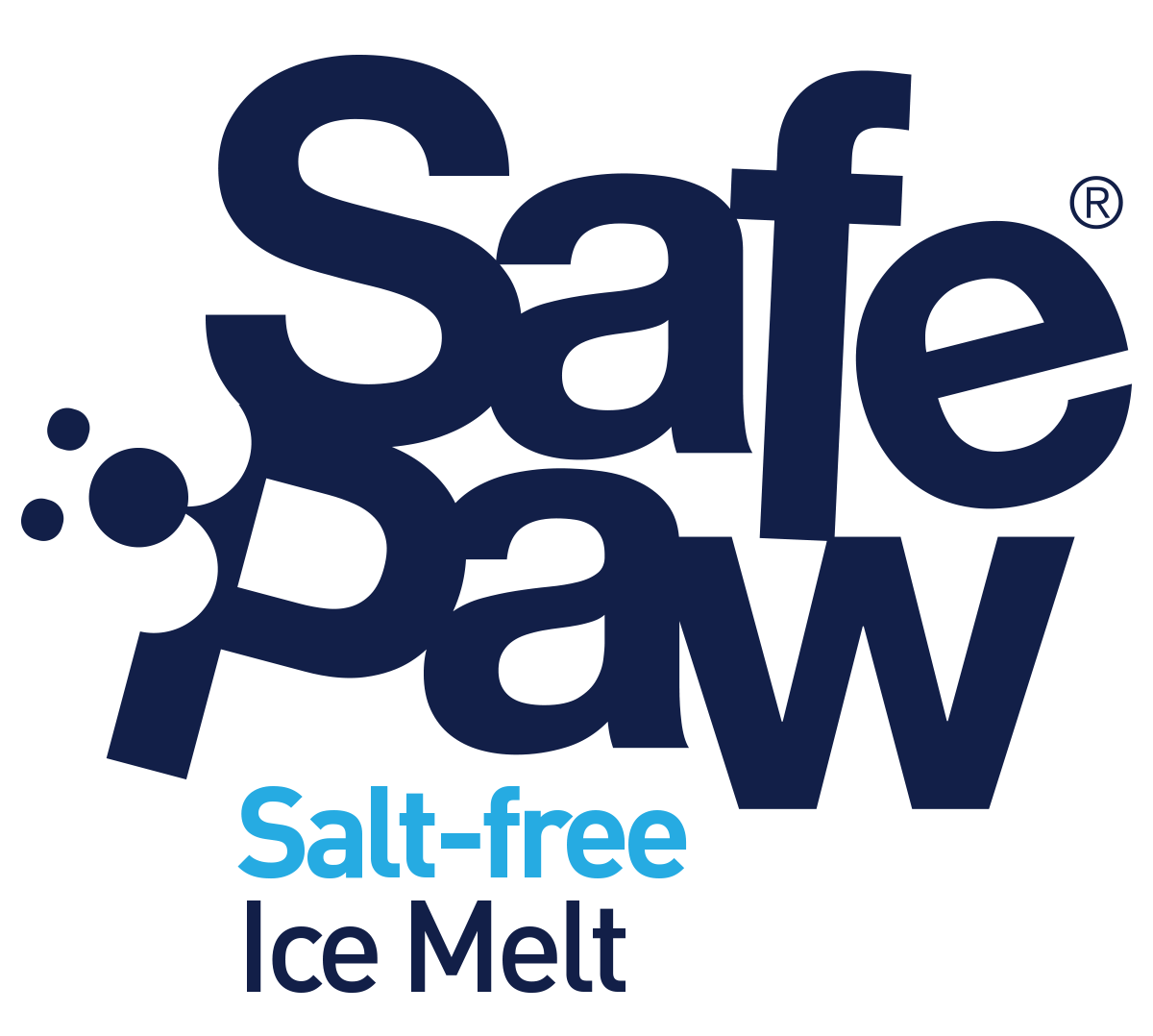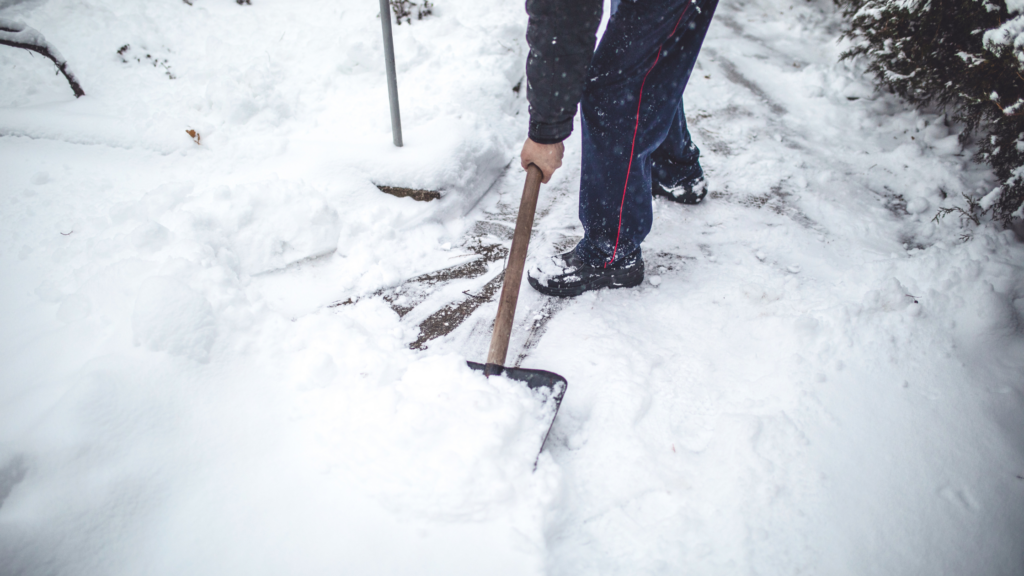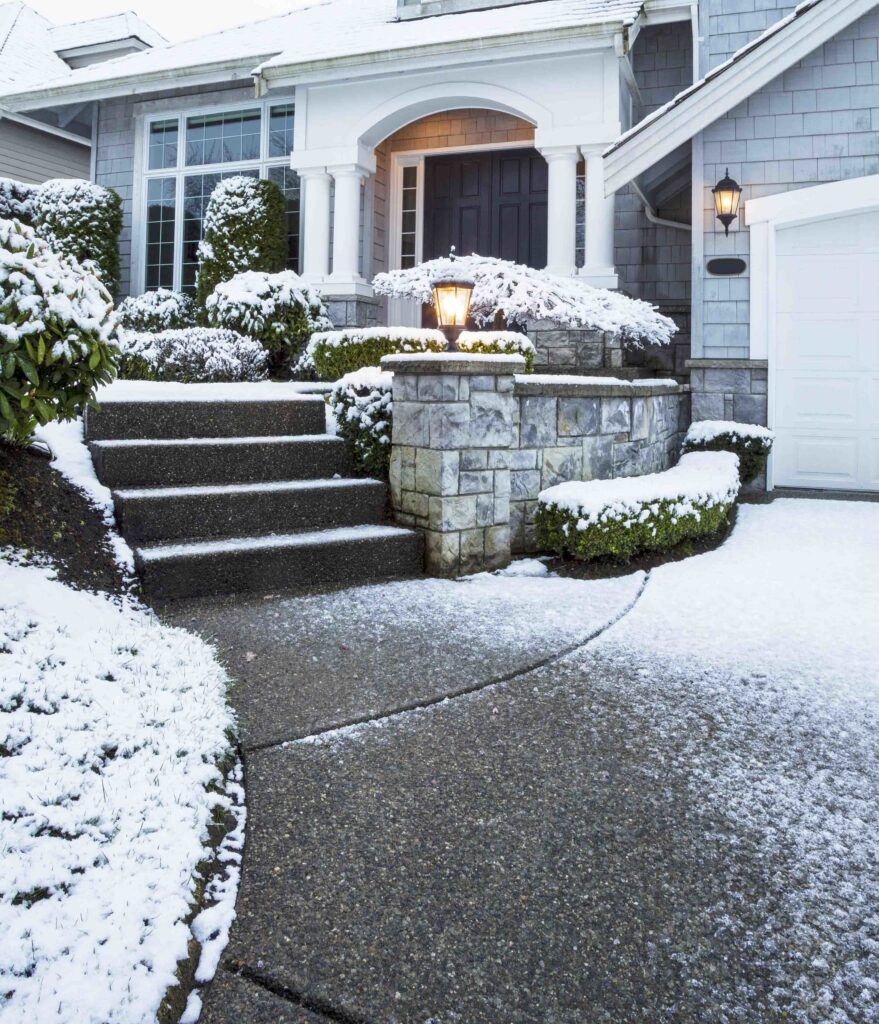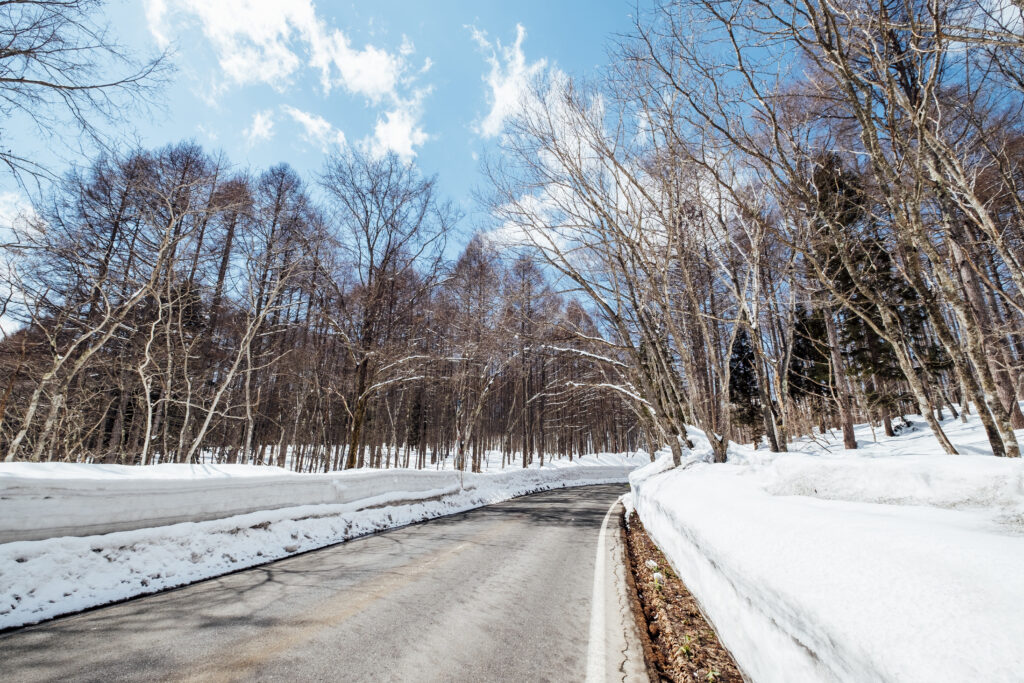
Winter can wreak havoc on driveways, with icy conditions making them hazardous for pedestrians and vehicles alike. While driveway ice melt is essential for safety, the chemicals in traditional de-icers often cause more harm than good. From damaging driveway surfaces to harming the environment, these products come with significant drawbacks. Fortunately, there are safer, more effective options available to keep your driveway clear without compromising its integrity or the ecosystem.
Table of Contents
Understanding the Impact of Traditional Ice Melts on Driveway Surfaces
Conventional ice-melting products, such as sodium chloride (rock salt) and calcium chloride, are widely used due to their effectiveness in melting ice. However, these chemicals come with hidden costs:
- Surface Damage: Salt-based ice melter for concrete accelerate the freeze-thaw cycle. Water seeps into the driveway’s surface, freezes, and expands, causing cracks, spalling, and long-term degradation. Over time, this weakens the structural integrity of concrete and asphalt surfaces.
- Corrosion: Calcium chloride and other chloride-based compounds corrode metal reinforcements and edging, further damaging the driveway.
- Environmental Harm: Runoff from traditional ice melts contaminates soil and waterways, disrupting plant growth and harming aquatic ecosystems.
- Health Risks: These chemicals are toxic to pets and humans. They irritate skin, and if ingested, they can cause gastrointestinal issues.
Get ready for winter with Safe Paw: The Pet-Friendly Ice Melter that cares – for your home, pets, and planet.
Eco-Friendly Alternatives to Chemical Ice Melts
For those looking to reduce their environmental impact, several natural de-icing solutions are available:
- Beet Juice Mixtures: Beet juice, when mixed with brine, lowers the freezing point of water and provides a biodegradable alternative. However, it is less effective in extreme cold and can stain driveway surfaces.
- Sand: Sand provides traction on icy surfaces but doesn’t melt ice. It also requires cleanup after the snow season to avoid clogging drains.
- Coffee Grounds: A creative option that provides traction and helps with minor ice melting due to its dark color absorbing sunlight. However, its effectiveness is limited in heavy snowfall.
While these traditional ice melter for concrete have their benefits, they often lack the efficiency and ease of use that homeowners need during harsh winters.
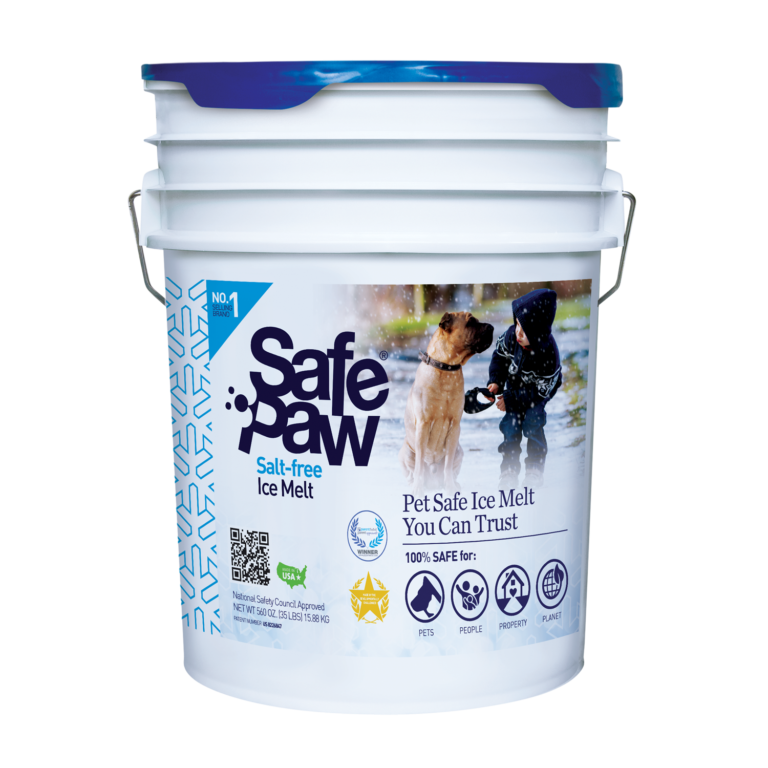
Safe Paw
It is a pet-friendly, eco-friendly ice melt that is safe for your family, pets, and property. It is made with a unique formula that is gentle on paws and concrete, and it melts ice and snow quickly and effectively.
Safe Paw is the perfect choice for winter weather!
Innovative Products for Safe and Effective Ice Removal
Advanced ice melt products, such as Safe Paw, offer a modern solution to the challenges posed by traditional ice melts. Safe Paw is a 100% salt-free and chloride-free driveway ice melt designed to protect your surfaces while ensuring safety for pets and plants.
- Non-Corrosive: Unlike traditional salts, Safe Paw won’t damage concrete, asphalt, or metal surfaces, preserving the longevity of your driveway.
- Pet and Child Safe: Safe Paw’s non-toxic formula eliminates the risk of irritation or ingestion hazards.
- Environmentally Friendly: Its biodegradable ingredients ensure that soil, plants, and waterways remain unharmed.
- Effective in Extreme Cold: Safe Paw works at temperatures as low as -19°C (-2°F), making it a reliable choice for harsh winters.
Get ready for winter with Safe Paw: The Pet-Friendly Ice Melter that cares – for your home, pets, and planet.
Preventative Measures to Minimize Ice Formation on Driveways
Beyond using ice melt products, taking preventative measures can reduce the need for de-icers:
- Proper Drainage: Ensure water flows away from your driveway to prevent pooling and freezing.
- Timely Snow Removal: Shovel or plow snow promptly to minimize ice buildup.
- Snow-Melting Mats: Invest in electric mats that prevent ice formation by heating the surface. These mats are an excellent complement to products like Safe Paw for comprehensive winter safety.
Liquid Magnesium Chloride Ice Melt: Does It Solve More Problems Than It Creates?
Building on the discussion of alternative de-icers, it’s worth looking at one option often marketed as a greener choice: liquid magnesium chloride ice melt. On paper, it sounds promising—it works at lower temperatures than rock salt and produces less visible surface damage. Municipalities sometimes use it for pre-treatment on roads because it helps reduce bonding between snow and pavement.
But here’s the reality: magnesium chloride is still a chloride-based solution. When applied repeatedly to driveways or sidewalks, the same freeze-thaw stresses eventually show up. The runoff can alter soil chemistry, making it harder for grass or shrubs near the driveway to thrive. And if pets walk across it, paw irritation or ingestion risks remain.
So, while it’s often positioned as “gentler,” liquid magnesium chloride isn’t the magic bullet it’s sometimes portrayed to be. It’s a step sideways, not forward. For homeowners who want both performance and peace of mind, chloride-free solutions designed specifically for residential use still lead the way.
De Icer Salt and the Hidden Costs Most People Overlook
By now, many people already know that de icer salt can wear down driveways and corrode vehicles. But what doesn’t always get talked about are the subtle, ongoing costs it introduces. For instance, every bag of de-icer salt that gets spread onto your driveway doesn’t just vanish with the next melt—it leaves behind residues that can be tracked indoors. This often ends up on carpets and flooring, creating stains and wear that require extra cleaning or even replacement.
Another hidden cost comes in springtime when salt residue mixes with soil along the edges of driveways. Lawns and flower beds that looked healthy in the fall can emerge patchy or brown, leaving homeowners puzzled. And if you’ve invested in decorative stone, brick, or pavers around your property, salt is notorious for etching and fading those finishes.
Choosing something that doesn’t rely on chloride chemistry avoids this “springtime surprise.” That’s where a pet friendly salt for ice alternative like Safe Paw sets itself apart, offering the winter safety you need without the downstream problems you don’t.
Get ready for winter with Safe Paw: The Pet-Friendly Ice Melter that cares – for your home, pets, and planet.
Calcium Chloride vs Sodium Chloride for Melting Ice: Two Roads to the Same Problem
When winter temperatures plunge, the debate often shifts to calcium chloride vs sodium chloride for melting ice. Calcium chloride gets credit for working in more extreme cold, while sodium chloride is cheaper and widely available. Yet for homeowners, it often feels like choosing between fast damage and slow damage.
Sodium chloride leaves behind that familiar white crust on shoes, carpets, and driveways, while calcium chloride accelerates corrosion and can create slick, slimy residue when it over-applies. Both of them still carry risks for pets, gardens, and the integrity of your driveway.
This is why so many people are stepping back from the “which chloride is better” conversation altogether. Because when you think about it, why choose between two chemicals that both create long-term headaches when there are chloride-free options that actually avoid the problem in the first place?
Pet Friendly Salt for Ice: More Than Just Marketing
Some products position themselves as pet friendly salt for ice, but the wording is worth reading closely. Often these blends are simply lower concentrations of the same chlorides, which might reduce irritation but don’t remove the risk altogether. Dogs with sensitive paws or cats that lick their fur after being outside can still end up dealing with burns or stomach upset.
True peace of mind comes from products that are completely salt-free—engineered to break the bond between ice and surfaces without relying on sodium, calcium, or magnesium chlorides. It’s not just a matter of lowering the risk; it’s about eliminating it entirely. For families that view pets as part of the household, that distinction matters.
Conclusion: Moving Past the Salt Cycle
From liquid magnesium chloride ice melt to the ongoing debates about calcium chloride vs sodium chloride for melting ice, the pattern is clear: each new version of salt promises fewer problems but still creates the same cycle of damage, corrosion, and health risks. Even when packaged as eco-friendlier or “pet friendly,” these options don’t escape the underlying chemistry that makes chloride salts problematic.
Breaking the cycle means asking a different question—not “which salt should I choose?” but “do I need salt at all?” That’s the turning point where products like Safe Paw make sense. By being entirely salt-free and non-corrosive, they protect driveways, keep pets safe, and avoid the hidden repair bills that always follow salt-based de-icers.
So this winter, instead of stocking up on just another bag of chloride, consider shifting the strategy entirely. A driveway kept clear and safe shouldn’t come at the cost of cracked concrete, sick pets, or a polluted yard come spring. With Safe Paw, you don’t have to choose between safety and sustainability—you get both in every handful.
Try Our Other Winter Safety Products
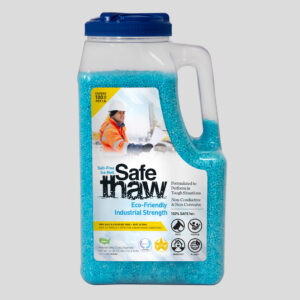
Safe Thaw
Safe Thaw was created as the ice management solution for tough winter environments. Ideal in commercial and industrial properties, shops, government agencies, bridges, construction. It’s 100% Salt-Free and Chloride-Free.
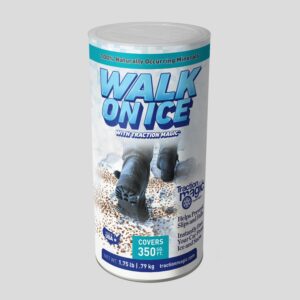
Walk On Ice
The slip and fall prevention solution, for any icy or snowy surface, on a handy portable package! Lightly spread around your walkway, driveway, vehicle, tires, and pathways. Turn ANY icy surface instantly, into a non-skid, slip-free surface.
